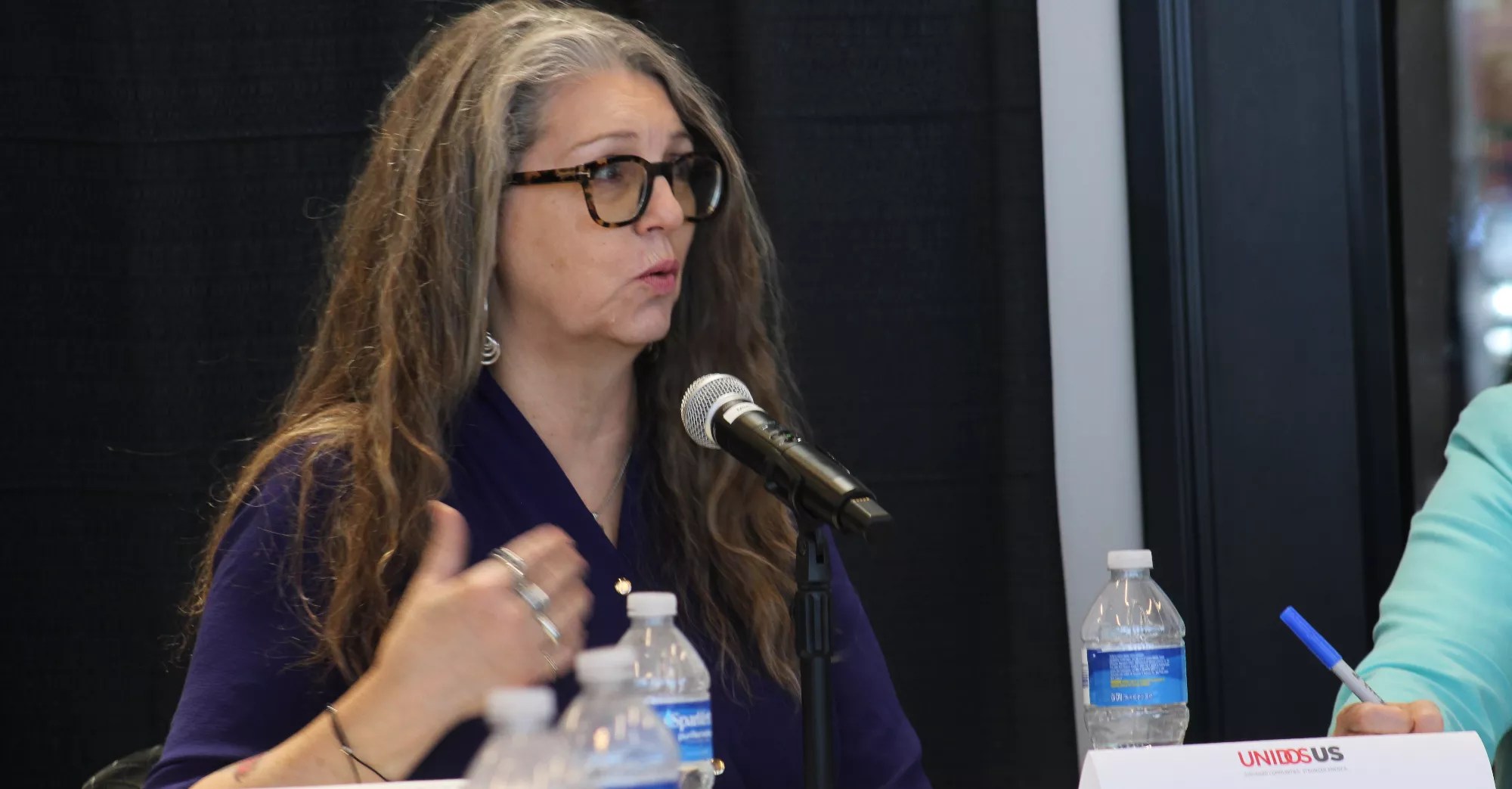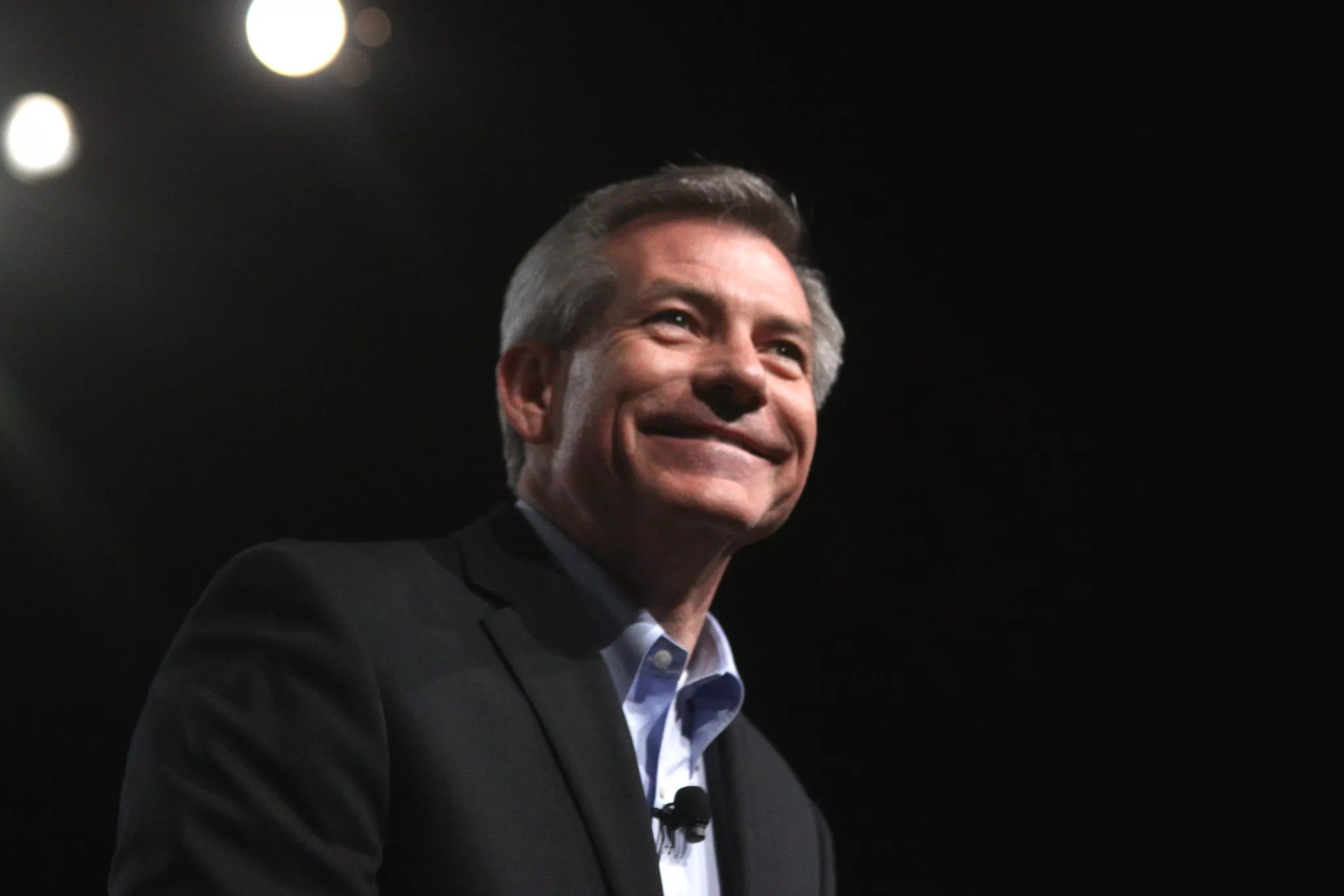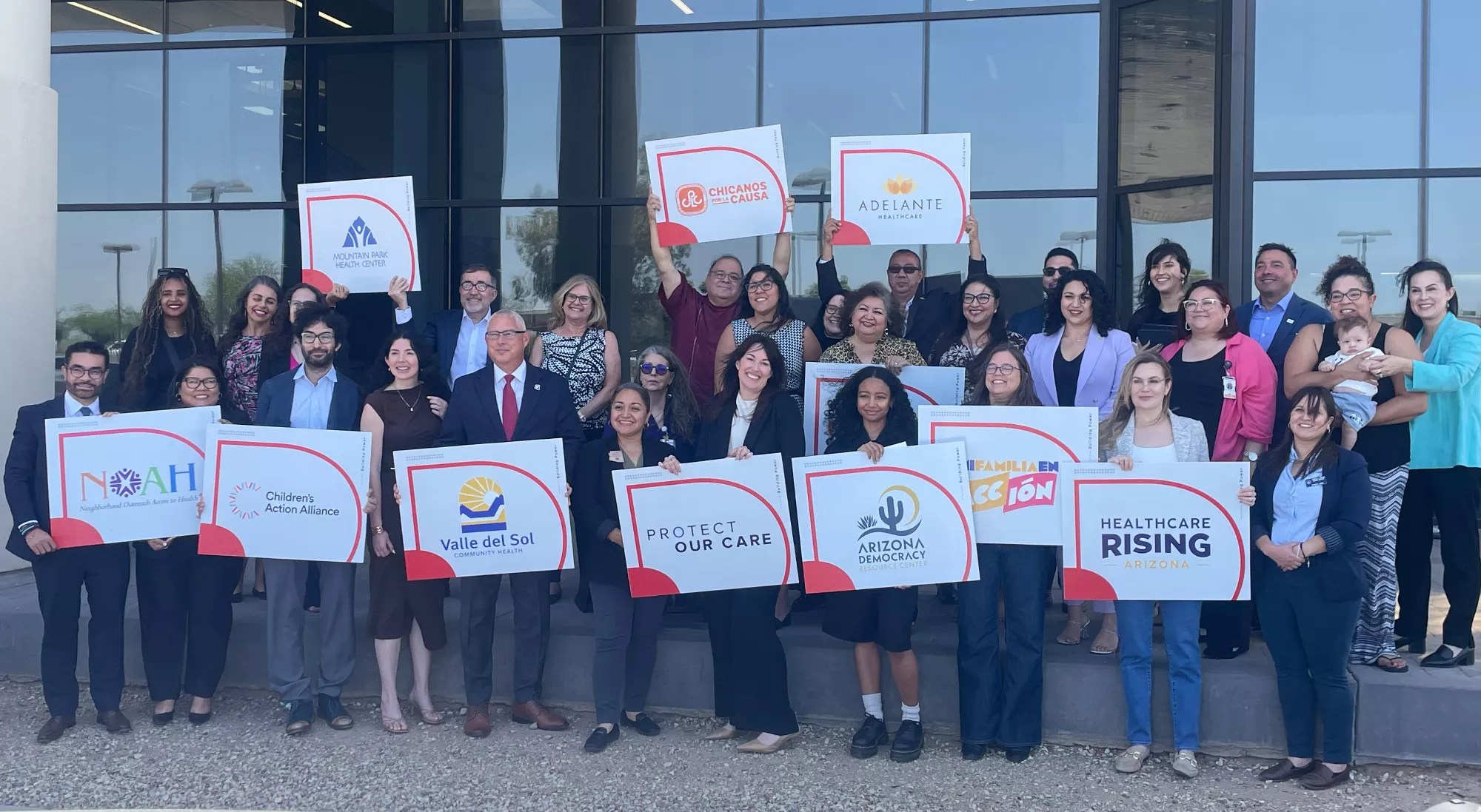
Morgan Fischer

Audio By Carbonatix
Last Tuesday, hundreds of postcards arrived at the home of Janey Pearl Starks. The community impact officer for Mountain Park Health Center, Starks had spent the previous week driving to the center’s 11 community health clinics throughout the Valley to pass the cards around. Like boomerangs, she’d expected their returns.
The postcards were not addressed to her, but to Republican Rep. David Schweikert. The conservative congressman is one of several Arizonans in the House of Representatives set to vote on a recent Republican budget proposal that would slash $880 billion from the health care safety net. The cuts would specifically target Medicaid, which provides health care coverage to more than 2 million low-income Arizonans.
Starks and others are leading an effort to stop that from happening. Mountain Park’s centers serve the more than 115,000 underserved Valley patients, a population that would be most impacted by Medicaid cuts. At each of Mountain Park’s locations, “clinic captains” have informed patients of the proposed cuts and explained how their own health care would be impacted.
The clinic workers have then asked patients to sign a postcard – which urges Schweikert to “protect Medicaid” and recognize its “vital role in Arizona” – which will then be delivered to the congressman’s district office. In just the last week, Starks and her Mountain Park staffers collected more than 715 postcards.
“It’s super grassroots,” Starks told Phoenix New Times on Tuesday. “But we have to do something.”
Starks outlined her project Tuesday at a roundtable discussion of more than a dozen health care-related advocacy groups. Hosted by the nonprofit Latino organization UnidosUS at a Neighborhood Outreach Access to Health clinic in south Scottsdale, the event was more working group than a media event. Only a few reporters attended, and even fewer community members.
More than anything, it felt like a crisis meeting, a chance for a gaggle of advocacy groups to organize, strategize and brace for the fight against the GOP budget proposal. Staffers from the offices of Rep. Greg Stanton and Sens. Mark Kelly and Ruben Gallego – all Democrats – also attended. The groups said they extended an invitation to Schweikert’s office, but no staffer of his attended. A representative for Schweikert did not immediately respond to a request for comment.
“If you look around the room at the stakeholders that are sitting here and the networks that they’re associated with, there’s a great deal of power and influence in this room,” said Eric Rodriguez, the vice president of UnidosUS. “How do we drive that toward more collective action on these issues?”

A coalition of health advocacy organizations plans to pester Republican Rep. David Schweikert until he opposes a GOP plan to cut Medicaid.
Gage Skidmore/Flickr/CC BY-SA 2.0
‘Real harm’
The roundtable participants had little trouble defining the problem. The Republican budget proposal’s $880 billion in cuts to Medicaid would help cover the cost of $4.5 trillion in tax breaks, many of which would benefit the richest of Americans and corporations.
Democrats and health care advocates have warned that the cuts could cost an estimated 8.6 million Americans their health coverage. Without it, those Americans could lose access to essential services like routine checkups, pregnancy and childbirth care, vital surgeries and cancer treatments. Without Medicaid – or with a less robust version of it – the out-of-pocket costs for such care would go up, forcing families to make tough financial decisions to fill the gaps.
That harm would affect more than just individual patients and families. It’s likely to weaken the country’s entire health care system. Rural hospitals could face closures, depriving communities of access to doctors. When medical bills go up for a large swath of Americans, the economy feels the strain. “When coverage goes away, people still need health care,” said Jessica Yanow, the president and CEO of the Arizona Alliance for Community Health Centers. “So, there’s still costs associated with that.”
At the Tuesday roundtable, Joseph Garcia of Chicanos Por La Causa called the proposal “a simple case of health versus wealth.”
“This is really punishing our most vulnerable communities, families and children who are in dire need of health care in order to justify tax breaks for the wealthiest of our nation,” said Garcia, who is the vice president of public policy for the group. “This should not be up for debate. It’s real harm.”
The question is: What’s to be done? Two months ago, Kelly and Gallego hosted a town hall in the same room about the potential Republican plan to cut Medicaid. There, an attendee told them about potentially losing the ability to pay for treatments for one of her kids, whose rare form of diabetes is covered by Medicaid. “I’m 100% going to take that back to my Republican colleagues,” Kelly told her.
It doesn’t seem that Kelly’s colleagues listened. On Sunday, House Republicans released a formal budget plan that formalized cuts to Medicaid. That spurred advocacy groups into action, leading to Tuesday’s roundtable.
At the event, the newly formed coalition shared ideas, strategies and next steps for targeting two vulnerable Republican representatives: Schweikert and Juan Ciscomani. Both serve in districts that are considered competitive in the 2026 midterms, potentially making them more scared of pissed-off constituents than they would be of bucking Donald Trump. Ciscomani has already spoken out against Medicaid cuts, but Schweikert – who has faced protests outside of his district office – hasn’t been as bold.
But if activists turn one, Garcia said, more may follow.
“It’s only going to take a few Republicans to say no and fight this. But you don’t want that narrow of a margin,” Garcia said. “It’s strength in numbers. A few more will say no, and a few more will join it. They need to know that they’re safe. That’s politics.”

The attendees of the health care roundtable pose for a photo.
Morgan Fischer
Going on the offensive
How do they do that? Jennifer Longdon, a former state representative and the chief external affairs officer for AACHC, said it basically requires being a real pain in the ass.
“It doesn’t take a whole lot to shut down a congressional office’s phone line,” she said, apologizing to the staffers of the elected officials in the room. (“Call the other offices,” cracked Abigail O’Brien, who is the state director for Gallego.) Longdon called this moment “an opportunity to flex,” urging organizers to blow up phone lines, write letters, clog email boxes, flood social media accounts, attend community events and, of course, protest.
The whole nine yards.
“There is enough collective power across Arizona and the nation to make them see the natural consequences of voting against the well-being of the constituents that they serve,” Longdon said.
Of course, that will take more than the organizers at the Tuesday discussion. To effectively push back against the proposed cuts, advocacy groups must recast the cuts “from being just cruel, which should be enough, to also being wildly unpopular,” said Monica Sandschafer, the Arizona director for Mi Familia Vota. “The more we can connect this kind of proposal with people’s real lives, the less popular it’s going to be.”
Many Americans are “tired of politics,” Garcia said, and may not be interested in engaging in overtly political actions. That means organizers must “explain that this is not politics, this is public health,” he said. “This is your friends, your neighbors, family members, colleagues, coworkers, perhaps even yourself.”
Organizers have some time – the Republican proposal still needs to make it through both the House and the Senate. But that time is not infinite. It will take a concerted and sustained effort to place lawmakers like Schweikert and Ciscomani on the fence and then tip them over the other side. The calls, emails and, yes, postcards need to start hitting fast and furious.
“We’re not going to change the administration’s mind on just about anything,” Rodriguez said. “But Congress is the one that has to pay the price come next November. So that’s our opportunity for influence. It’s on us to hold them accountable.”